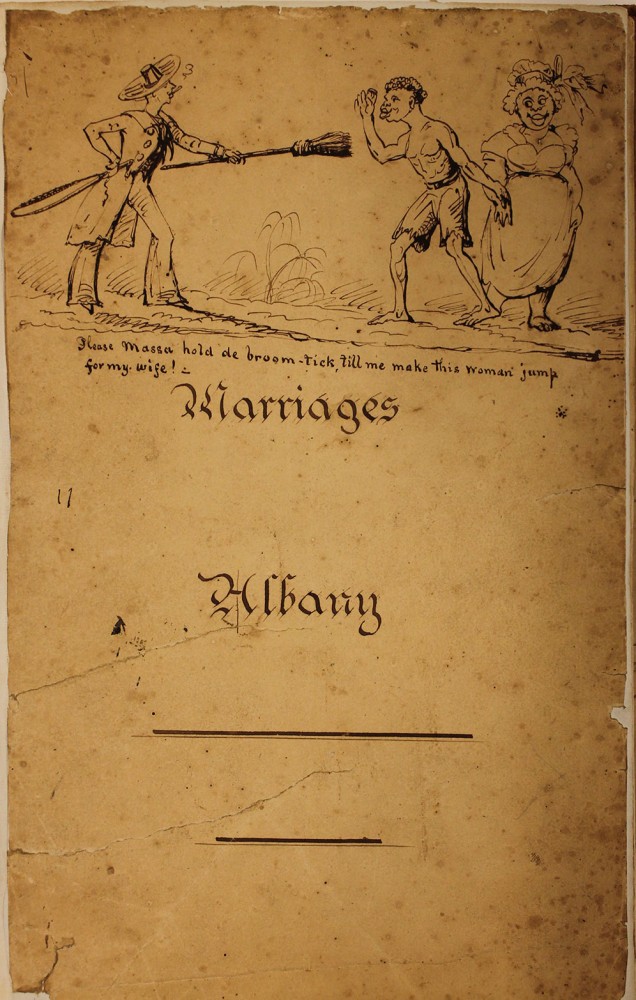The Abolition of Slavery
In August 1833 British Parliament abolished slavery in the British Caribbean, Mauritius and the Cape when it passed the ‘Act for the abolition of slavery throughout the British Colonies, for promoting the industry of manumitted slaves, and for compensating the persons hitherto entitled to the services of such slaves.’ In place of slavery the negotiated settlement established a system of apprenticeship and granted £20 million in compensation, to be paid by British taxpayers to the former slave-owners. Since 2009 the internationally acclaimed Legacies of British Slavery project has explored how the fruits of slavery were transmitted to metropolitan Britain, creating a database of the 46,000 compensation claimants that connects them to the slaves and estates whose ‘loss’ they suffered.

Sources:
Chapman, Tom, and Sally Grundy ‘Speeches about John Randall Phillips and George Braithwaite Phillips.’ ACC 9645AD/1: Synopsis of John Randall Phillips, 2017. https://purl.slwa.wa.gov.au/slwa_b5089179_1.pdf
Dundes, Alan. "'Jumping the Broom': On the Origin and Meaning of an African American Wedding Custom", The Journal of American Folklore, 1996.
Legacies of British Slave-ownership, University College London. https://www.ucl.ac.uk/lbs/
Parry, Tyler D., Jumping the Broom: The Surprising Multicultural Origins of a Black Wedding Ritual (The University of North Caroline Press, 2020)
(NB there are other men of this name alive during the 1830s as the LBS database details: https://www.ucl.ac.uk/lbs/person/view/2146631832 )
Front cover, Church Registers: Albany Marriages, Marriage Notices and Declarations (1839-1856). AU WA S4043-cons703_7 https://archive.sro.wa.gov.au/index.php/transcript-of-church-registers-albany-marriages-marriage-notices-and-declarations-07
This drawing, dated to 1842, may be associated with the career of John Randall Phillips (1789–1852) thought to be the grand-son of a wealthy slave-owner in Barbados, John Randall Phillips (1724–1773). Phillips junior was born at St Michael, Barbados, but was educated in Bristol at Redland Hill House, a boarding school run by his father George and attended largely by members of the West Indian families. He travelled to Swan River in 1829 on the ‘first fleet’ along with many other investors planning to become landed gentry—ignoring the First Nations people already in occupation. He was the Resident Magistrate of WA’s regional port town Albany in 1842.
The cartoon shows a couple ‘jumping the broom’, a practice closely associated with the marriage of enslaved people in the southern states of America during the 1840s—and revived within twentieth century African-American culture during the 1970s. Is this drawing linked to Phillips’ West Indies background? Or does it suggest links to the ‘slave states’ of America?
Overlooked Histories of Slavery
The legacies of British slavery have been suppressed both in Britain and its former colonies, despite their powerful economic, cultural and legal consequences. Since 1833 Britain has proudly celebrated the abolition of slavery, yet its long antecedent history of participation in the slave trade has been largely omitted from scholarly analysis and popular memory. Historical repression has proven to be more pronounced in former colonies such as Australia, where preliminary research indicates that slave wealth and culture constituted a significant and ongoing historical force.
Many existing histories and resources overlook this framework – such as the Australian Dictionary of Biography (ADB), established in the 1960s, which almost entirely omits links to slavery.
Preliminary research indicates that it is highly likely that some of the compensation received by slave owners was directly invested in the financial infrastructure and land development of early colonial Australasia. Through biographical research the proposed project will track not only the individuals who claimed compensation, but the familial, social, commercial, administrative and political networks that constituted and sustained imperial connection.
Western Australia and British Slavery
Western Australia, founded in the 1820s as debates about emancipation and colonisation were intensifying, provided an alternative destination to the Caribbean for the investment of capital, goods and people. Recent work by a handful of Australian and British historians has begun to trace this movement toward new markets and opportunities, revealing links between the sugar industry in the West Indies and Queensland and gold-rush Victoria, emancipation in the West Indies and the establishment of Swan River, and the ways that imperial careers instantiate the connections between slavery and settler colonialism. Using the LBS databases, this project will track those who benefited from slavery and their subsequent interests in WA through familial, social, commercial and professional networks. Labour is a distinctive theme in WA history: unlike the other Australian colonies, WA was founded as a free settlement. Demand for labour prompted the transportation of small numbers of juvenile offenders from 1842, and it functioned as a penal colony between 1849 and1868. WA also remained under British governance until 1890 and so offers an especially clear picture of British policy in this period.
Project Outcomes
We are working with the National Centre for Biography to develop a series of short biographies of figures associated with British Slavery. These are being published in People Australia, the NCB's universal dictionary of biography.
Shakespear Hamilton: Sandy McGhie and Xavier Reader,” Shakespear Hamilton,” People Australia, National Centre of Biography: Australian National University (2022)
Maria Schaw: Sandy McGhie and Xavier Reader, “Maria Susan Schaw,” People Australia, National Centre of Biography: Australian National University (2022)
George William Mangles: Sandy McGhie and Xavier Reader, “George William Mangles,” People Australia, National Centre of Biography: Australian National University (2022)
Edward William Butcher: Sandy McGhie and Xavier Reader, “Edward William Butcher,” People Australia, National Centre of Biography: Australian National University (2022)
Peter Pegus: Xavier Reader, Georgina Arnott, Jane Lydon and Zoë Laidlaw, “Peter Pegus,” People Australia, National Centre of Biography: Australian National University (2022)
Publications
2022. "Writing Slavery into Biography: Australian Legacies of British Slavery". Special Issue, Australian Journal of Biography and History. (6) https://press.anu.edu.au/publications/journals/australian-journal-biography-and-history/ajbh-6
Martens, Jeremy. 2022. "‘In a State of War’: Governor James Stirling, Extrajudicial Violence and the Conquest of Western Australia’s Avon Valley, 1830–1840." History Australia. https://www.tandfonline.com/doi/full/10.1080/14490854.2022.2072351
Lydon, Jane. 2022. "Racial Punishment from Slavery to Settler Colonialism: John Picton Beete in Demerara and Swan River." Slavery & Abolition. https://www.tandfonline.com/doi/full/10.1080/0144039X.2022.2122713